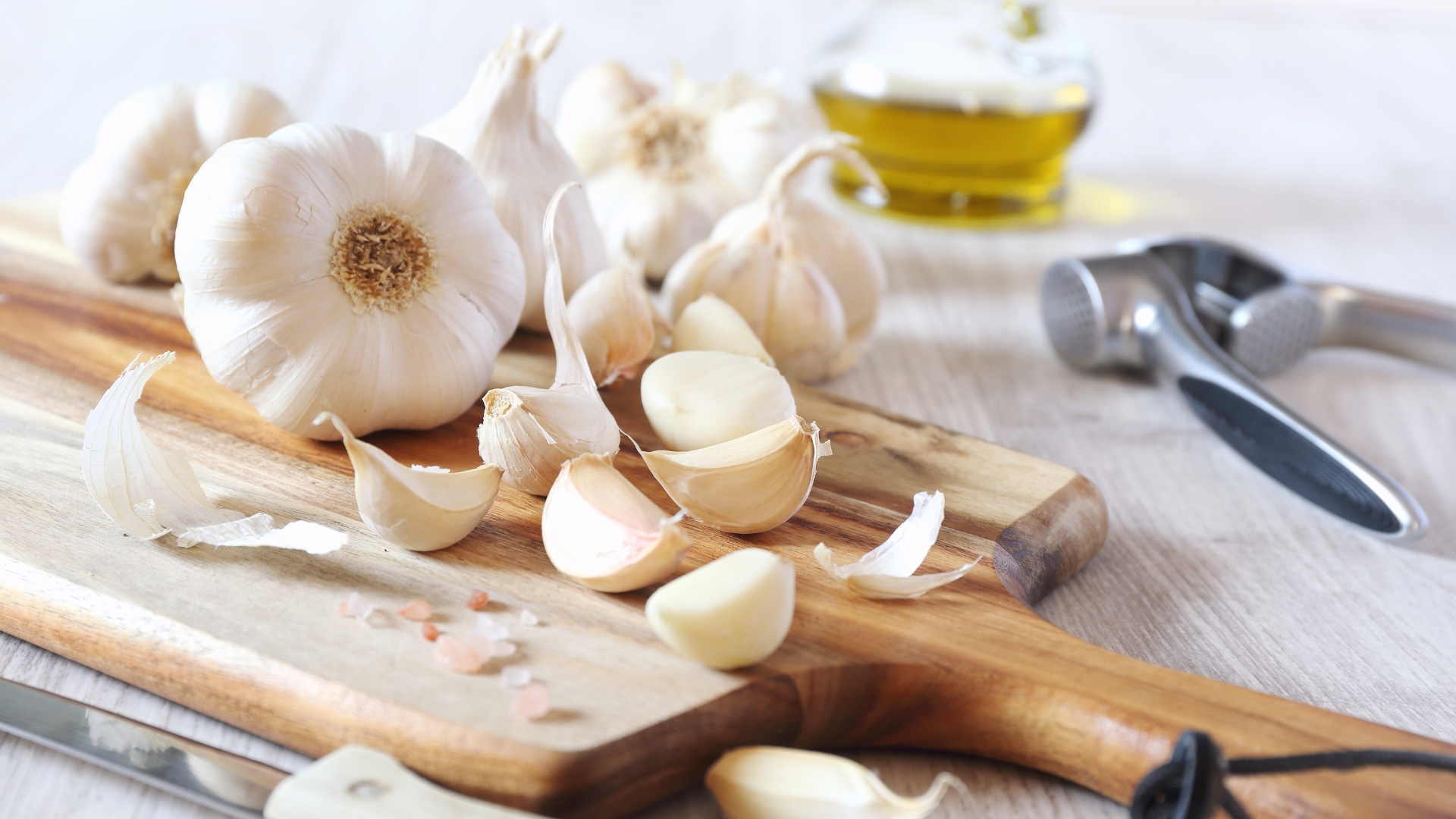
Table of Contents
Why Garlic Shows Up in Cholesterol Talk
Garlic contains sulfur compounds (like allicin) and antioxidants that may influence how the body handles fats and cholesterol. That’s why you’ll see it in many “heart-healthy” lists.
What No One Tells You
- It’s not a statin. Garlic’s effect on cholesterol is modest and often requires consistent use for more than 8 weeks to show up in blood tests. Don’t expect drug-level drops. :contentReference[oaicite:0]{index=0}
- Short trials can mislead. In a 28-day head-to-head study of supplements vs a statin, garlic didn’t help—and LDL even rose slightly compared with placebo over that short window. :contentReference[oaicite:1]{index=1}
- Not all garlic is equal. Benefits vary by form (raw, powder, oil, aged extracts). Some standardized aged extracts show reductions in total and LDL cholesterol in certain groups; others do not. :contentReference[oaicite:2]{index=2}
- Baseline matters. People with higher starting cholesterol sometimes see more change than those already near goal. Results are mixed across studies. :contentReference[oaicite:3]{index=3}
- Labels don’t tell the whole story. Supplement brands differ in allicin yield and processing, which can change potency and results. :contentReference[oaicite:4]{index=4}
What the Evidence Actually Says
Systematic reviews & overviews: Large reviews conclude garlic supplements can lower cholesterol a little after 2+ months, but the effect is modest compared with medications. :contentReference[oaicite:5]{index=5}
Mixed meta-analyses: Some analyses find small drops in total cholesterol (and sometimes triglycerides) without clear LDL/HDL changes; others suggest broader lipid improvements—heterogeneous methods make direct comparison tricky. :contentReference[oaicite:6]{index=6}
Aged garlic extract (AGE): Early randomized trials reported ~7% total cholesterol and ~10% LDL reductions in hypercholesterolemic adults—findings not universal across all preparations. :contentReference[oaicite:7]{index=7}
Forms of Garlic & How They Differ
- Raw/culinary garlic: Delivers allicin when crushed/chopped, but amounts vary with preparation and cooking.
- Garlic powder/capsules: Convenient, but allicin yield and stability differ by brand.
- Garlic oil/macerates: Different compound profile; not the same as allicin-rich forms.
- Aged garlic extract (AGE): Fermented/aged; standardized products have shown lipid effects in some trials. :contentReference[oaicite:8]{index=8}
How to Use Garlic (Without the Hype)
- Food first: Use garlic to upgrade a Mediterranean-style pattern (vegetables, legumes, whole grains, olive oil, fish).
- Be consistent: If using a supplement, any cholesterol effect typically requires more than 8 weeks of steady intake—and may still be small. :contentReference[oaicite:9]{index=9}
- Know when to escalate: If LDL is above goal or cardiovascular risk is high, talk to your clinician about medications; don’t delay proven therapy while experimenting. :contentReference[oaicite:10]{index=10}
Safety, Side Effects & Interactions
- Common effects: GI upset, reflux, odor; rare allergy.
- Bleeding risk: Garlic can interact with anticoagulants/antiplatelets; pause before surgery as advised. :contentReference[oaicite:11]{index=11}
- Short-term “tests” aren’t decisive: A month is often too short to judge benefit; pair with lifestyle changes and follow labs at appropriate intervals. :contentReference[oaicite:12]{index=12}
Bottom Line
Garlic can play a supporting role in cholesterol management—especially as part of a heart-healthy diet—but its effect is modest and inconsistent across products. For meaningful LDL reduction and risk control, prioritize proven strategies (dietary pattern, exercise, weight management, and medications when indicated). :contentReference[oaicite:13]{index=13}


